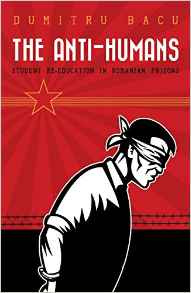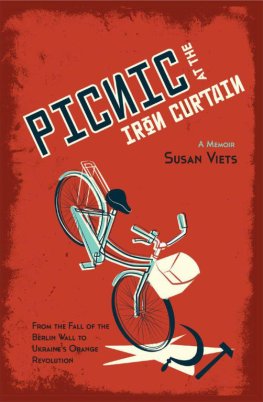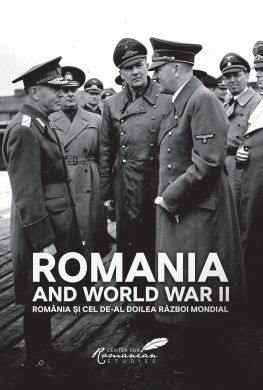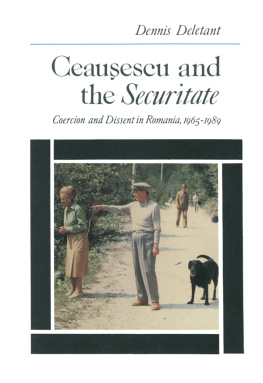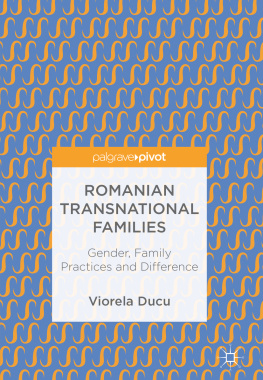THE ANTI-HUMANS
STUDENT RE-EDUCATION IN ROMANIAN PRISONS
by Dumitru Bacu
1971, Soldiers of the Cross, Englewood, Colorado.
The original Romanian manuscript, under the title, Pitesti, Centru de Reeducare Studentesca , was published at Madrid in 1963.
Online version here:
http://www.miscarea.net/anti-humans.htm
ABOUT THE AUTHOR
He attended high school in Greece, obtained his baccalaureate in Constanta, then registered in a Polytechnic (Engineering) Institute, from which he was later discreetly eased out because of his political convictions.
His father, an orthodox priest, was fired in 1946 when Greek authorities closed down Romanian churches in Greece as a result of Ana Paukers suspension of the priests salaries, which traditionally had always been paid by the Romanian government.
Arrested in September of 1949, Bacu learned about the unmaskings in 1951 while a prisoner at Aiud, and after being transferred to Gherla prison in May 1953, he decided to begin his own investigation of the Pitesti Phenomenon.
He was freed in April of 1956, by decree of amnesty for foreigners, for, though a Romanian, he held a dual citizenship by virtue of having been born in Greece. Following his release, he spent three more years gathering further material for his book. Then he left the country.
In these pages, translated from the Romanian, the reader will, for the first time, have at his disposal a fairly complete account of the Bolshevik techniques of dehumanization, including some details here mentioned as delicately as possible, of which we do not like to think ... The book was written to make known what is in store for the West if it permits itself to continue to be fascinated by the song of the co-existentialist sirens.
The persons selected by the Bolshevik beast for de-humanization were a clearly defined group, namely, university students. That was because in Romania, in sharp contrast to what we see in the United States today, university students were a highly respected elite, and included men who combined the vigor and ardor of youth with unsurpassed patriotism and a lucid conservatism, intellectual and religious.
So devoted were they to the memory of their leader, Codreanu, a man of noble purpose and pure religious faith, that thirty years after his death, and twenty years after the loss of their country, these dedicated followers, exiles in foreign lands, are menaced even there by the ubiquitous power of the anti-humans and the ever accelerated conquest of the Western world by its furtive enemies.
Even though the greatest proportion of students and of those who underwent unmaskings were Legionaries, one must not forget that such an experiment encompasses MAN in his totality, and that it is possible at any time and in any place.
The essential ideas of this book are two-fold: the Satanism of the method used, implying total disregard for the human condition; and the impossibility of fundamental re-structurization of character, of the human essence.
The Western reader must understand that in his country too these things can happen with certainty, if apathy makes possible the inauguration of such a regime as that which caused the disaster in Romania. All they have to do is look at the so-called cultural revolution in Maos China, and at the public unmaskings not of the enemies of the regime, but of that regimes high echelon cadres. Or no one can affirm seriously that these self-criticisms are the result of convictions that appeared overnight. We, sufferers under the Romanian regime, as administered by the Bolsheviks, know how these confessions were extracted.
When the United States has progressed to the point reached by Romania in 1948, there will be no place on earth to which Americans can flee, and there will be no one to hear their screams.
INTRODUCTION
by Warren B. Heath
The author of this book, a Romanian born in Greek territory, went to Romania for his university education and there became a member of the anti-Communist organization that flourished in that nation before and during the tragic and fratricidal Second World War. After the Bolshevik conquest of Romania, the Soviets, undoubtedly on orders from their masters, maintained a pretense that their occupation was merely temporary and further disguised their purposes by keeping on the throne as King of Romania the legitimate heir, a young man who was merely a puppet in their hands, but served to give to the people an illusive hope that Romania, though devastated and impoverished, might again become a free nation. In this hope, of course, the Romanians (like many other captive peoples) were encouraged by the governments of the Western nations that had won the military victory. Those governments, especially in the United States, maintained a pretense that they were not the servants of the Bolsheviks masters, and, whenever they deemed it expedient to administer a little verbal paregoric to their own population, manufactured oratory about defending the Free World and containing Communism. Americans, who were so charmed by those phrases that they did not notice what their own government was doing, cannot blame the Romanians (or the others) for having supposed that the official verbiage was an indication of national policy.
During the early years of Soviet occupation, therefore, the Romanian people entertained delusive hopes of eventual liberation, and the author of this book accordingly remained in Romania, his true fatherland. When he was at last arrested and imprisoned on suspicion of holding opinions inimical to Bolshevism, he, luckily, suffered only the excruciating tortures and hardships that are normal in what is called a Great Society. During his imprisonment, however, he had by chance an opportunity to learn of an experiment conducted on a select group of young men, and he had the acumen and patience to discover precisely what that experiment was. In this book he discloses for the first time the facts about a practice of which the peoples of the West still know nothing.
Bacu speaks only of what he knows of what he witnessed with his own eyes and learned from the lips of men who had, despite themselves, been stripped of their humanity by an infallible scientific technique. His subject, therefore, is what the Bolsheviks secretly did to human beings in the prison at Pitesti[1] from 1949, when the experiment began, to 1951, when it seems to have been temporarily discontinued for some reason unknown.
What is described in these pages is not, however, an isolated event. Everyone who has had experience in military intelligence dealing with the Bolsheviks, or who has made a close study of information that is available from little known but authentic sources, will recognize in Bacus pages a detailed description of a technique that the implacable enemies of mankind have used in many lands perhaps in all countries that are officially Communist for many years. The military intelligence agencies of Western nations have long known that a film demonstrating basic Pavlovian procedures was produced in Russia for training the Bolshevik secret police in 1928, and that the intelligence service of at least one nation succeeded in obtaining a copy of that film. After the notorious purge trials in Russia in 1936, when the masters of that country for some reason thought it advisable to exhibit to the world their ability to elicit the most incredible confessions from highly-placed and hardened Bolsheviks, intelligent observers naturally wondered what means could have been employed to produce such amazing results. Certain Western intelligence services sought to ascertain what means had been used, and eventually ascertained them in sufficient detail to show that the essentials of the method were precisely those that Mr. Bacu has described for us.

